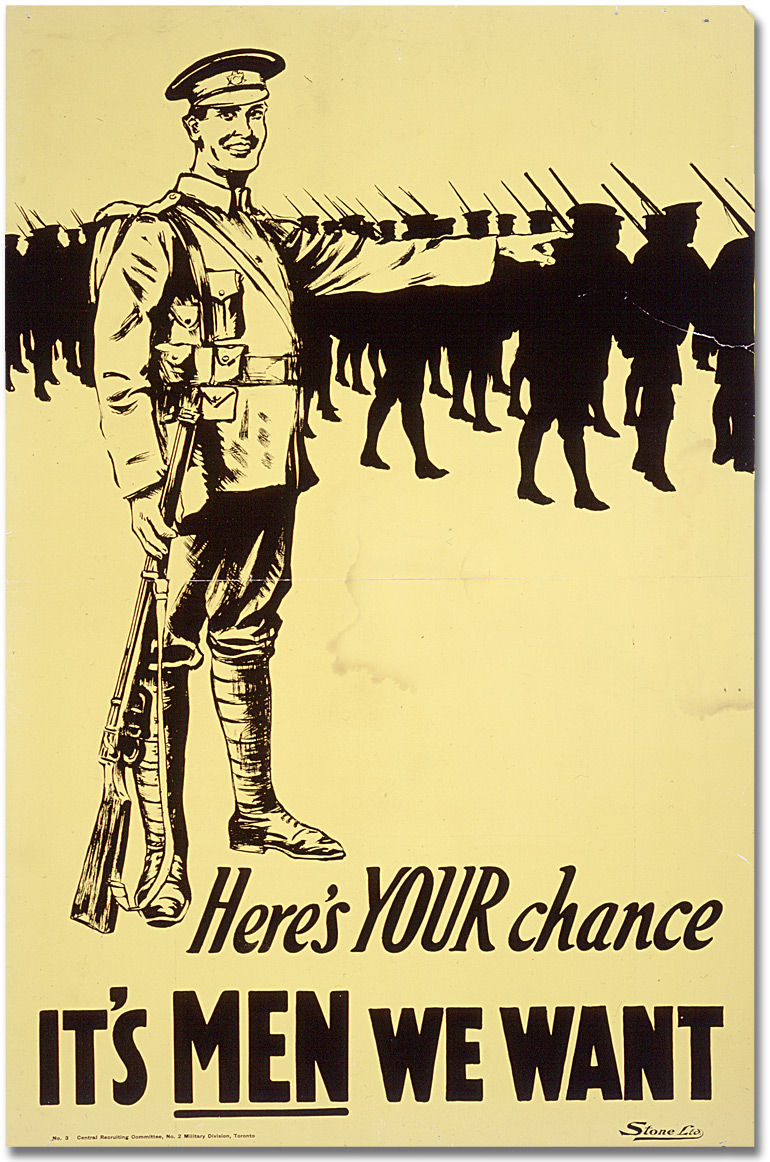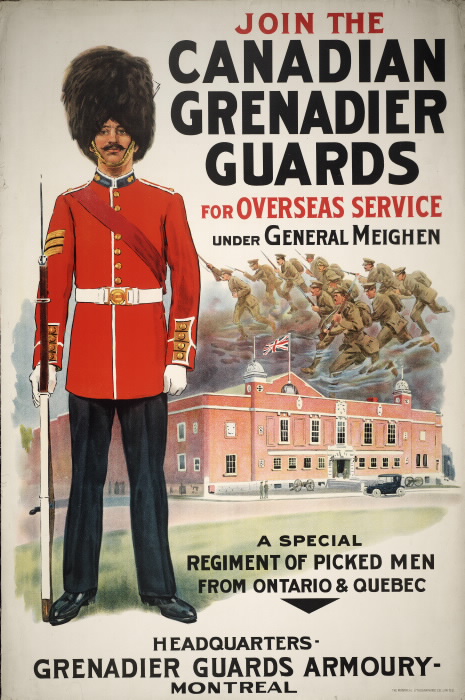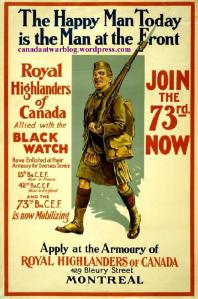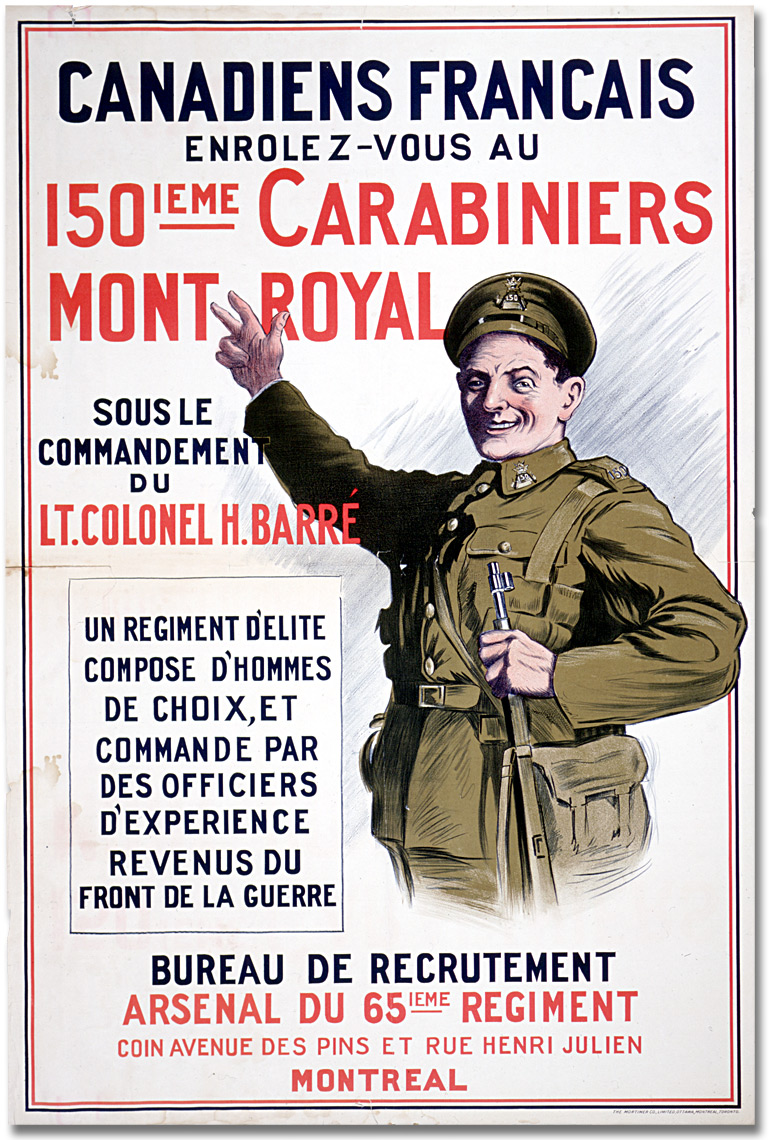Which Battalion would you have joined?




The first call-up of volunteers included battalions from every province from B.C. to Quebec. The only battalion to represent Quebec was almost entirely composed of English speakers from Quebec and the Maritime provinces.
Canada's only French language battalion, the 22nd, however, was not part of the First Division. Sam Hughes believed that English should be the only language allowed in a Canadian army. Eventually Hughes relented and the 22nd became part of the Second Division which went overseas in 1915.
No Maritimes battalions sailed as part of the First Division either. The 25th Battalion (Nova Scotia Rifles), and the 26th Battalion (New Brunswick) were part of the Second Division.
In 1914 Newfoundland was a British Colony, not a Canadian province. The Royal Newfoundland Regiment was part of the 29th Division, British Army. The Regiment suffered severe casualties at Gallipoli in 1915 and was almost wiped out on the first day of the Somme Offensive in 1916.
Here's the regions and the battalions of the 1914 Canadian Expeditionary Force:
British Columbia - 16th Canadian Scottish, Victoria
Alberta - 10th Battalion, Canadians, Calgary & Winnipeg
Saskatchewan - 5th Battalion, Western Cavalry
Manitoba - 8th Battalion, Winnipeg Rifles
6th Battalion, The Light Horse.
Ontario - Royal Canadian Regiment, London
Princess Patricia's Canadian Light Infantry, Ottawa
1st Western Ontario, Canadian Fusiliers, London
2nd Eastern Ontario
3rd Toronto Regiment
4th Central Ontario, Niagara
15th Battalion, 48th Highlanders of Canada, Hamilton
Quebec - 13th Royal Highlanders of Canada, Montreal
14th Royal Montreal Battalion